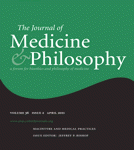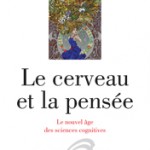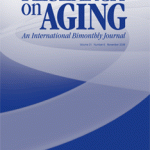Call for Workshop Papers for a Session on Anatomies of Knowledge : Medicine, Science, and Health in Asia
at the Conference on Inter-Asian Connections III Hong Kong
(June 6-8, 2012)
DEADLINE: Friday, June 24, 2011
Co-organized and co-sponsored by The Hong Kong Institute for Humanities and the Social Sciences (HKIHSS) at the University of Hong Kong, the National University of Singapore (NUS), and the Social Science Research Council (SSRC).
The Hong Kong Institute for the Humanities and Social Sciences (HKIHSS) at the University of Hong Kong, the National University of Singapore (NUS), and the Social Science Research Council (SSRC) (the Organizers) are pleased to announce an open call for individual research paper submissions from researchers in any world region, to participate in a 3-day thematic workshop at an international conference, « Inter-Asian Connections III: Hong Kong. »
To be held in Hong Kong, June 6-8, 2012, the conference will host six concurrent workshops, led by two or three directors and showcasing innovative research from across the social sciences and related disciplines. Workshops will focus on themes of particular relevance to Asia, reconceptualized as a dynamic and interconnected historical, geographical, and cultural formation stretching from the Middle East through Eurasia and South Asia, to East Asia. Four workshops were chosen competitively from among 41 applications while two were organized by the host institution. We are now accepting applications for all six workshops.
The conference structure and schedule have been designed to enable intensive ‘working group’ interactions on a specific research theme, as well as broader interactions on topics of mutual interest and concern. Accordingly, there will be a public keynote and plenary sessions in addition to closed workshop sessions. The concluding day of the conference will bring all the conference participants together for the public presentation and exchange of research agendas that have emerged over the course of the conference deliberations.
Individual paper submissions are invited from junior and senior scholars, whether graduate students or faculty, or researchers in NGOs or other research organizations, for the following six workshops.
WORKSHOP DIRECTORS:
Angela Ki Che Leung Hong Kong Institute for the Humanities and Social Sciences, The University of Hong Kong kcleung7@hku.hk
Izumi Nakayama The University of Hong Kong nakayama@hku.hk
« Asia » is still used as shorthand to refer to a large, nebulous region, traditionally defined in opposition to « Western/modern ». Can « Asia » be a new constructive category of analysis, then, if the idea is taken out of oppositional and dichotomous relationships with the « West, » and used as a fluid, plural, maybe unique, and continuous process in the building of the contemporary global? This workshop aims to explore these ideas by focusing on the issues of medicine, science, and health. Does knowledge generated by new technologies and disease studies reinscribe « traditional » beliefs about race, ethnicity and nation, or does it contribute to a new and larger collective, broadly imagined as « Asia »?
Recent research uses the ideas of medicine, science, and health to engage the larger « Asian » identities. Leung and Furth (2010), for instance, identify the porous and interconnected relationships of the local and the global to reconceptualize East Asia. Ong and Chen (2010) use the term « Asian Biotech » to address a growing regional focus on the pursuit of biotechnology as national interest, with Asian players positioning themselves as key global actors to surpass the « West. » This workshop will examine such and other ongoing processes of redefining and reconfiguring « Asia » by focusing on three broad themes, and encourages applications from a wide range of disciplines and backgrounds.
Changing ideas/ideals, Changing Asia(s) – Since the mid nineteenth century, « modern » science and medicine, via the « West » and sometimes via Japan, had been interacting with the historically-specific local, socio-cultural perspectives and practices on the « Asian » body. How have these knowledges interfaced in the colonial/postcolonial periods, transforming and impacting the present discourse? How do the « global genealogies of scientific practices in highly local situations » (Leung and Furth, 2010) translate from the past? How are the legacies and genealogies, preserved in policies and institutions, adjusting to the shifting narratives of the rapidly transforming biotechnologies and ethics of medicine, science, and health? How are old and new ethical reasoning informed by, and forming, new modes of capitalism, nationalism, sovereignty, and the notion of « Asia »?
Biosecurity: Crises, Risks, Reactions – The insecurities and risks associated with the modern pandemics results from the continual global movements of peoples, goods, and diseases, with political, economic, and social impact. Are new diseases such as SARS, Bird Flu, H1N1 etc. considered and managed as « Asian » diseases the way cholera, plague, and leprosy were in the 19th century, or differently? How does post-colonial manipulation of international quarantine impact the notions of borders, sovereignty, citizenship, civil rights and identities in « Asia » and in individual Asian states? How does global or « Asian » economics inform quarantine politics and quarantine impact trade? How is the « Asian » element in such institutional setup integrated and interpreted?
Trials and tribulations? New and « experimental » sciences and technologies – In an age where new technologies outpace legal adaptation and ethical discourse, how do governments, corporations, academics, or other agents provide ethical, legal, political, economic oversight and protection and what are the consequences? How do indigenous medicines fit in? What kinds of historical legacies, cultural capital, religious traditions, and other value systems inform, shape and formulate shifting narratives to test and incorporate new technologies, which may transform previously-held ideas of nutrition, well-being, and reproduction of individuals, families, and communities? Genomic and stem cell research, organ farming, new reproductive technologies and birth controls, genetically-modified foods-how do these new technologies impact « Asian » identities and policies?
The three themes are not mutually exclusive, as common issues are intertwined through the broad topics of medicine, science, and health. They also point to the « Asian » historicity of knowledge, and the constantly shifting factors shaping them.



